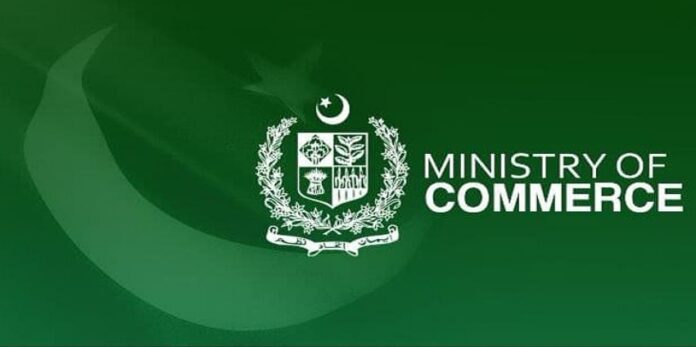The Ministry of Commerce (MoC) clarified that it does not play a role in addressing illicit trade or smuggling and does not maintain relevant data, suggesting a “Whole-of-Government” approach to tackle the issue comprehensively, BR reported.
The proposal was made by Additional Secretary (Trade Policy), Salman Mufti, during a meeting of the Sub-Committee of the Senate Standing Committee on Commerce, chaired by Senator Sarmad Ali. Senators Faisal Saleem Rahman and Zeeshan Khan Zada also attended the session.
The sub-committee was convened to review claims made by the economic think tank PRIME and assess whether they were substantiated, with the aim of proposing sustainable solutions if necessary.
PRIME, which includes retired FBR officials among its members, had reported that illicit trade in five major sectors accounts for 56% of total trade in Pakistan, while formal trade makes up only 44%.
According to PRIME’s estimates, the total value of illegal trade is approximately Rs 750 billion annually, including Rs 300 billion in tobacco, Rs 60–65 billion in pharmaceuticals, Rs 106 billion in tyres and lubricants, Rs 270 billion in petrol and diesel, and Rs 10 billion in tea.
PRIME also referenced an estimate from a member of the Competition Commission of Pakistan (CCP), a former FBR officer with Customs Intelligence experience, who suggested the volume of illicit trade could be as high as $16 billion annually. The reported figures, especially the Rs 300 billion attributed to the tobacco sector, raised concerns among committee members, who questioned their accuracy.
Senator Faisal Saleem Rahman, who also chairs the Senate Standing Committee on Interior, expressed skepticism about the tobacco sector data, calling it exaggerated. He emphasized that if the figures were accurate, action should be taken against relevant officials for failing to address the issue.
Senator Zeeshan Khan Zada, in support, recommended independent verification of the reported figures. He proposed a joint meeting of all stakeholders, both public and private, to examine diverse viewpoints and reach a well-informed conclusion.
Senator Sarmad Ali suggested inviting representatives from major tobacco companies, including Pakistan Tobacco Company and Philip Morris, along with local cigarette manufacturers, tobacco growers, FBR officials, and law enforcement agencies, to the next meeting to provide a comprehensive platform for discussion.
The committee also plans to hold a separate meeting focused on the pharmaceutical sector to investigate the causes of illicit trade and its impact on national revenue.




